Select Language
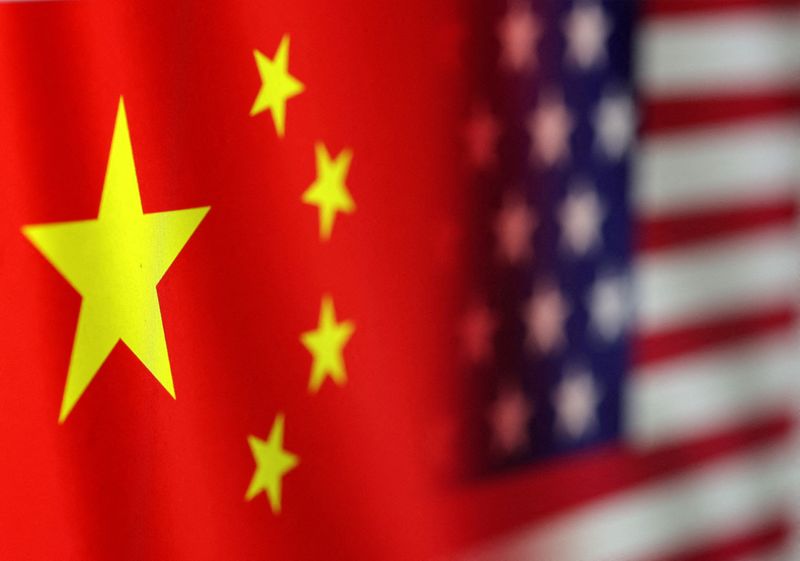
BEIJING (Reuters) - China will extend tariff exemptions for the import of some U.S. products until Feb. 28, 2025, the Customs Tariff Commission of the State Council said on Friday.
The listed items, including rare earth metal ore, medical disinfectant, nickel-cadmium battery and others will remain exempt from additional tariffs imposed as countermeasures to the U.S. Section 301 actions, the commission said.

By Alasdair Pal and Cordelia Hsu
SYDNEY (Reuters) -Australians reacted on Friday with a mixture of anger and relief to a social media ban on children under 16 that the government says is world-leading, but which tech giants like TikTok argue could push young people to "darker corners of the internet".
Australia approved the social media ban for children late on Thursday after an emotive debate that has gripped the nation, setting a benchmark for jurisdictions around the world with one of the toughest regulations targeting Big Tech.
The law forces tech giants from Instagram and Facebook owner Meta Platforms (NASDAQ:META) to TikTok to stop minors from logging in or face fines of up to A$49.5 million ($32 million). A trial of enforcement methods will start in January, with the ban to take effect in a year.
"Platforms now have a social responsibility to ensure the safety of our kids is a priority for them," Australian Prime Minister Anthony Albanese said on Friday
"We're making sure that mums and dads can have that different conversation today and in future days."
Announcing the details of the ban earlier this month, Albanese cited the risks to physical and mental health of children from excessive social media use, in particular the risks to girls from harmful depictions of body image, and misogynist content aimed at boys.
In Sydney on Friday, reaction to the ban was mixed.
"I think that's a great idea, because I found that the social media for kids (is) not really appropriate, sometimes they can look at something they shouldn't," said Sydney resident Francesca Sambas.
Others were more scathing.
"I'm feeling very angry, I feel that this government has taken democracy and thrown it out the window," said 58-year-old Shon Klose.
"How could they possibly make up these rules and these laws and push it upon the people?"
Children, meanwhile, said they would try to find a way around the ban.
"I feel like I still will use it, just secretly get in," said 11-year-old Emma Wakefield.
WORLD FIRST
Countries including France and some U.S. states have passed laws to restrict access for minors without a parent's permission, but the Australian ban is absolute. A full under-14s ban in Florida is being challenged in court on free speech grounds.
The legislation was fast-tracked through the country's parliament in what is the last sitting week of the year, to criticism from social media firms and some lawmakers who say the bill has lacked proper scrutiny. It passed through the country's lower house of parliament on Friday morning in a procedural hearing.
A spokesperson for TikTok, which is hugely popular with teen users, said on Friday the process had been rushed and risked putting children into greater danger.
"We're disappointed the Australian government has ignored the advice of the many mental health, online safety, and youth advocacy experts who have strongly opposed the ban," the spokesperson said.
"It's entirely likely the ban could see young people pushed to darker corners of the internet where no community guidelines, safety tools, or protections exist."
Albanese said on Friday passing the bill before the age verification trial has been completed was the correct approach.
"We are very clearly sending a message about our intentions here," he said.
"The legislation is very clear. We don't argue that its implementation will be perfect, just like the alcohol ban for under 18s doesn't mean that someone under 18 never has access, but we know that it's the right thing to do."
The ban could strain Australia's relationship with key ally the United States, where X owner Elon Musk, a central figure in the administration of president-elect Donald Trump, said in a post this month it seemed a "backdoor way to control access to the Internet by all Australians".
It also builds on an existing mood of antagonism between Australia and mostly US-domiciled tech giants. Australia was the first country to make social media platforms pay media outlets royalties for sharing their content and now plans to threaten them with fines for failing to stamp out scams.
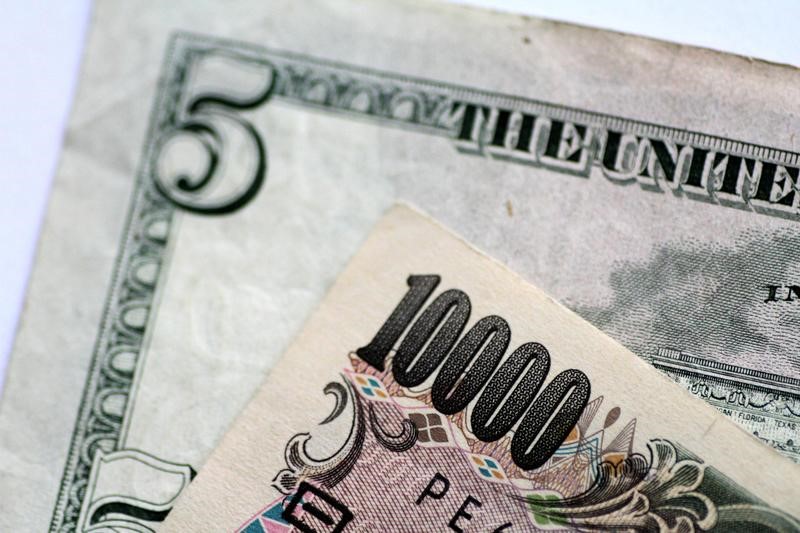
Investing.com-- The Japanese yen hit its strongest level against the dollar in just over a month on Friday as higher-than-expected inflation data from Tokyo reinforced expectations for a December rate hike by the Bank of Japan.
The yen’s USD/JPY pair- which gauges the amount of yen needed to buy one dollar- sank around 1% to as low as 150.01 yen- its lowest level since late-October.
The drop in the pair came as consumer price index data from Tokyo read stronger than expected for November.
The reading acts as a bellwether for nationwide inflation, and factored into expectations that steady inflation will keep the BOJ hawkish in the coming months.
A recent Reuters poll showed traders are positioning for a 25 basis point rate hike by the BOJ in December. BOJ Governor Kazuo Ueda had also recently reiterated the central bank’s plans to hike interest rates further, citing a “virtuous cycle” of higher wages and steady inflation.
“The acceleration in inflation, combined with the solid recovery in monthly activity, increases the odds of another BoJ rate hike in December,” ING analysts wrote in a note.
A December hike will be the BOJ’s third hike in 2024, as the central bank ended nearly a decade of negative rates and began tightening policy. The bank’s moves were driven largely by a sharp pick-up in wages this year, which underpinned private spending and inflation.
UBS analysts said in a recent note that they expect Japanese wages to rise further in 2025, potentially heralding more rate hikes from the BOJ. The central bank is also expected to act in supporting the yen, which was battered by a substantially stronger dollar through November.
Japanese stocks retreated on the prospect of high rates. The Nikkei 225 fell 0.7% on Friday, while the TOPIX shed 0.6%.
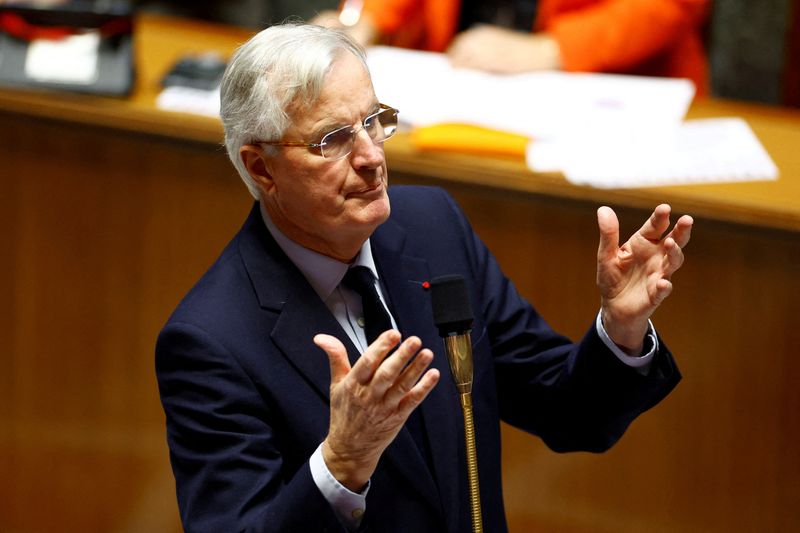
By Harry Robertson
LONDON (Reuters) - French borrowing costs effectively matched those of Greece on Thursday for the first time, as Michel Barnier's government teetered on the brink of collapse, underlining a dramatic shift in how lenders view the creditworthiness of euro zone members.
Far-right and leftist opposition parties have been threatening to bring down Barnier's government over its budget that includes 60 billion euros ($63 billion) in tax hikes and spending cuts.
Bond investors worry that the collapse of the government would mean any effort to cut borrowing is jettisoned.
"A no-confidence vote would reset the progress made with the current budget proposal and trigger a new period of political limbo," said Michiel Tukker, senior European rates strategist at lender ING.
In the middle of the euro zone sovereign crisis in 2012, Greece's borrowing costs, as measured by its 10-year bond yield, shot to more than 37 percentage points above those in France, as Greece looked destined to default on its debts.
Fast forward 12-1/2 years and Greek debt on Thursday morning traded within 0.02 percentage points of France at around 3%.
France's rising debt levels have been slowly eroding its advantages in the bond market for years. Then, the risk premium investors demand to buy French debt compared to its neighbours shot higher in June when President Emmanuel Macron called a snap election that resulted in a fragile hung parliament.
Meanwhile, the countries once at the centre of the 2012 crisis and labeled the PIGS - Portugal, Italy, Greece and Spain - have cut their debt levels and become more attractive to bond investors.
Greek public debt was already running at 100% of GDP before the euro zone crisis and surged to more than 200% as COVID-19 hit in 2020. But it has since fallen to around 160% of GDP and economists expect it to continue to fall.
French debt is historically elevated at 112% of GDP and rising. The state has spent heavily in response to the shocks of COVID-19 and the Ukraine war, while tax receipts have lagged expectations.
"Even if the government did achieve its planned consolidation, France would still have a pretty elevated budget deficit," said Max Kitson, rates strategist at Barclays (LON:BARC).
"If you look at Greece's debt-to-GDP profile, you have a downwards trajectory which contrasts with France's upwards trajectory."
Similar efforts to rein in debt - as well as years of bond purchases by the European Central Bank - in Ireland, Portugal and Spain have seen those countries' borrowing costs fall below those of France.
On the plus side for France, its bond yields have not risen sharply in absolute terms and are in fact down around 16 basis points since the start of the month.
Friday evening will prove a test, when S&P Global Ratings will update its assessment of France, after Fitch and Moody's (NYSE:MCO) downgraded their outlooks on the country last month.

By Takaya Yamaguchi
TOKYO (Reuters) -Japan's tax revenues are likely to hit a record high for a fifth straight year in the current fiscal year ending in March 2025, four government sources told Reuters.
The government will tap the additional revenues to fund part of a 13.9 trillion yen ($91.7 billion) spending package aimed at cushioning the blow to households from rising living costs.
It will also issue new government debt exceeding 6 trillion yen, the sources said, declining to be identified because the information is not public.
Total (EPA:TTEF) nominal tax revenues for the current fiscal year, initially estimated at 69.6 trillion yen, will likely increase to around 73.4 trillion yen due to robust corporate profits and rising inflation, they added.
Prime Minister Shigeru Ishiba announced last week a plan to compile the spending package, which includes fuel subsidies and payouts to low-income households to deal with increasing prices.
The government is expected to finalise on Friday a supplementary budget for the current fiscal year to fund the stimulus measures.
Unlike other advanced nations that had phased out crisis-mode stimulus, Japan continues to compile big-spending packages to underpin a fragile economic recovery.
Including debt issued to roll over maturing bonds, the outstanding balance of Japanese government bonds (JGB) has ballooned to 1,100 trillion yen - twice the size of Japan's economy and the largest among advanced nations.
($1 = 151.5400 yen)
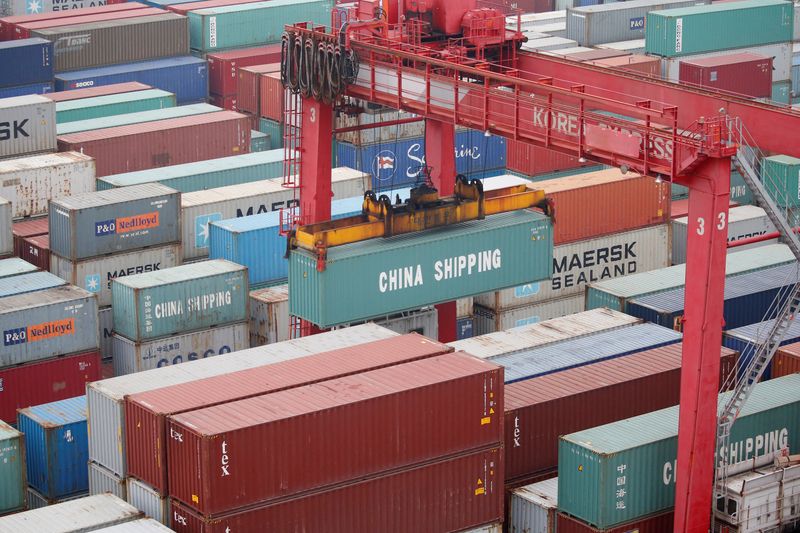
By Jihoon Lee
SEOUL (Reuters) - South Korea's export growth is expected to have slowed for a fourth straight month in November and to be the weakest in 14 months on slowing demand in the United States amid tariff policy uncertainty, a Reuters poll showed on Thursday.
Outbound shipments from Asia's fourth-largest economy are forecast to have risen 2.8% in November from a year earlier, after a gain of 4.6% in October, according to a median of 14 economists in the survey.
That would be the 14th straight month of annual export growth but the weakest year-on-year rise for the sequence, which had been led by strong demand in the United States, especially for semiconductors used in artificial intelligence chipsets.
"Non-semiconductor exports are slowing, including auto sales to the United States, and IT demand is also expected weaken gradually," said Chun Kyu-yeon, an economist at Hana Securities.
"Uncertainty of the second Trump presidency is setting an environment unfavourable to domestic manufacturing firms," Chun said.
U.S. President-elect Donald Trump on Monday pledged to impose big tariffs on imports from Mexico and Canada, which are expected to have a negative impact on South Korean firms as well.
In the first 20 days of this month, exports rose 5.8%, as chip sales jumped, but cars fell. Shipments to the United States fell 2.5% and were set for the first decline since July 2023, while those to China rose 3.5%.
South Korea, the first major exporting economy to report trade figures each month, is scheduled to release monthly data for November on Sunday, Dec. 1, at 9 a.m. (0000 GMT).
"The strength of the semiconductor sector will be overwhelmed by the weakness seen in other sectors," said Oh Suk-tae, an economist at Societe Generale (OTC:SCGLY).
"Weak exports will likely be unwelcome news for the growth outlook, but one can still take some comfort from the semiconductors rebound," Oh said.
Lee Seung-hoon, economist at Meritz Securities, said: "A recovery in U.S. manufacturing activity will become more and more important for broader strength across South Korea's export sectors."
The survey also forecast imports to have risen 0.4% in November, after growing 1.7% in October.
The survey's median estimate of this month's trade balance came in at a surplus of $5.15 billion, wider than $3.15 billion in the prior month.
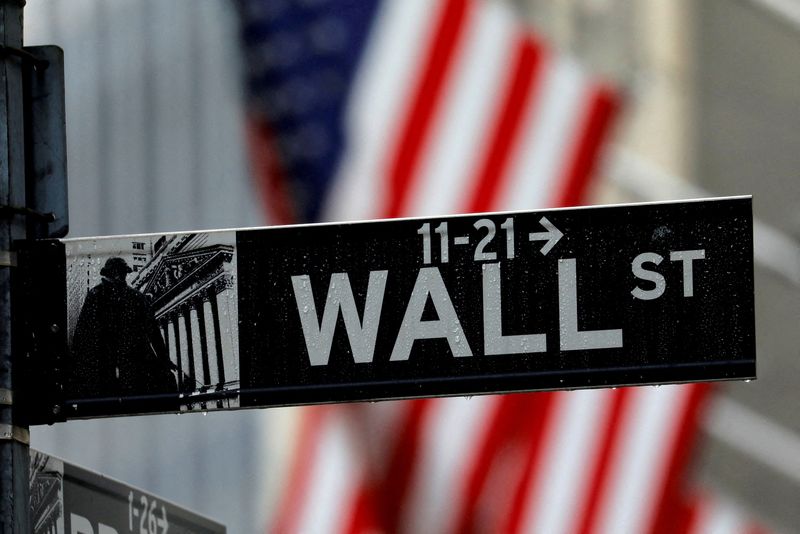
Investing.com-- U.S. stock index futures steadied on Wednesday evening following a negative session on Wall Street as weak earnings and increased regulatory jitters dented technology shares.
Investors also grew more uncertain over the outlook for interest rates after a batch of strong data showed resilience in the economy. Sentiment was especially peeved by a closely watched inflation gauge that is preferred by the Federal Reserve.
Trading volumes were muted, and are expected to dwindle further in the remainder of the week, on account of the Thanksgiving holiday.
S&P 500 Futures rose slightly to 6,017.75 points, while Nasdaq 100 Futures steadied at 20,819.50 points by 18:17 ET (23:17 GMT). Dow Jones Futures rose less than 0.1% to 44,852.0 points.
Tech hit by weak earnings, Microsoft’s FTC jitters
Losses in technology shares dented Wall Street on Wednesday, especially as a raft of weak earnings raised questions over how much of an earnings driver artificial intelligence was for the broader sector.
PC makers Dell Technologies Inc (NYSE:DELL) and HP Inc (NYSE:HPQ) both tumbled after their quarterly earnings and guidance underwhelmed, as AI provided only a limited earnings boost. Losses in the two spilled over into other AI-exposed stocks, with market darling NVIDIA Corporation (NASDAQ:NVDA) losing 1.2%.
Microsoft Corporation (NASDAQ:MSFT) was also a major weight on Wall Street, losing 1.2% as Bloomberg reported the U.S. Federal Trade Commission had launched a sweeping antitrust investigation into the company. The stock fell further in aftermarket trade.
Reports of Microsoft’s investigation come just days after U.S. authorities recommended tech giant Alphabet Inc (NASDAQ:GOOGL) divest some of its key assets, including web browser Google Chrome, over violations of antitrust laws. The news spurred some concerns over increased regulatory headwinds for America’s biggest tech firms, although the policy outlook is unclear in the face of a Donald Trump presidency.
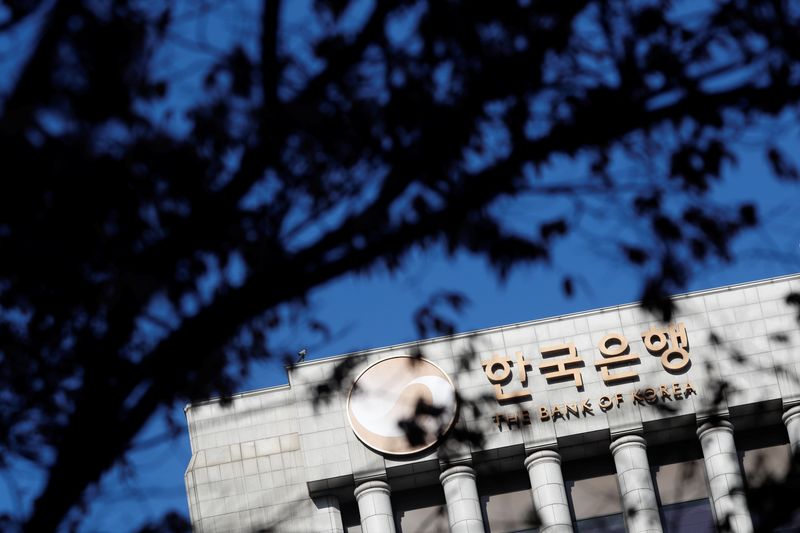
SEOUL (Reuters) - South Korea's central bank cut policy interest rates for a second straight meeting in a surprise move as the economy stalled and inflation slowed more rapidly than policymakers predicted.
The Bank of Korea (BOK) lowered its benchmark interest rate by a quarter percentage point to 3.00% at its monetary policy review, an outcome only four of 38 economists polled by Reuters expected. All others forecast the bank to keep rates unchanged.
Governor Rhee Chang-yong holds a news conference at around 0210 GMT, which will be livestreamed via YouTube.

By Sarah Morland, Raul Cortes and Brendan O'Boyle
MEXICO CITY (Reuters) -Mexican President Claudia Sheinbaum said on Wednesday Mexico would retaliate if U.S. President-elect Donald Trump followed through with his proposed 25% across-the-board tariff, a move her government warned could kill 400,000 U.S. jobs and drive up prices for U.S. consumers.
"If there are U.S. tariffs, Mexico would also raise tariffs," Sheinbaum said during a press conference, in her clearest statement yet that the country was preparing possible retaliatory trade measures against its top trade partner.
Mexican Economy Minister Marcelo Ebrard, speaking alongside Sheinbaum, called for more regional cooperation and integration instead of a war of retaliatory import taxes.
"It's a shot in the foot," Ebrard said of Trump's proposed tariffs, which appear to violate the USMCA trade deal between Mexico, Canada and the U.S.
Ebrard warned the tariffs would lead to massive U.S. job losses, lower growth, and hit U.S. companies producing in Mexico by effectively doubling the taxes they paid. "The impact on companies is huge," he said.
The proposed tariffs would hit the automotive sector's top cross-border exporters especially hard, Ebrard added, namely Ford (NYSE:F), General Motors (NYSE:GM) and Stellantis (NYSE:STLA).
Ebrard noted that 88% of pickup trucks sold in the U.S. are made in Mexico and would see a price increase. These vehicles are popular in rural areas that overwhelmingly voted for Trump.
“Our estimate is that the average price of these vehicles will increase by $3,000,” Ebrard said.
Sheinbaum and Trump spoke by phone later on Wednesday, the Mexican president said on social-media platform X, adding the two discussed "strengthening collaboration on security issues" and that the conversation was "excellent."
Trump has said the tariffs would remain in effect until the flow of drugs - particularly fentanyl - and migrants into the U.S. was controlled.
Sheinbaum added migrant caravans are no longer arriving at the U.S.-Mexico border "because they are attended to" in Mexico.
A caravan of several thousand migrants had been heading through southern Mexico but numbers have dwindled in recent days.
Many analysts regard Trump's tariff threats as more of a negotiating tactic than trade policy.
"The lack of a clear link between this threat and questions related to trade suggests the new president plans to use tariffs as a negotiating strategy to achieve goals largely unrelated to trade," said David Kohl, chief economist at Julius Baer (SIX:BAER).
PROFIT WIPED OUT
Mexico's automotive industry is the country's most important manufacturing sector, exporting predominantly to the United States. It represents nearly 25% of all North American vehicle production.
Analysts at Barclays (LON:BARC) said they estimate the proposed tariffs "could wipe out effectively all profits" from the Detroit Three automakers.
"While it's generally understood that a blanket 25% tariff on any vehicles or content from Mexico or Canada could be disruptive, investors under-appreciate how disruptive this could be," they wrote in a note on Tuesday.
Brian Hughes, a spokesperson for Trump's transition team, said the tariffs would protect U.S. manufacturers and workers from "unfair practices of foreign companies and foreign markets."
Hughes said Trump would implement policies to make life affordable and more prosperous for his country.
GM and Stellantis declined to comment. Ford did not comment on how the threatened tariffs would affect its business but said it manufactures more vehicles in the United States than most major automakers.
Mexico's automotive industry group AMIA said it would prepare for any possibility and wait to see what formal actions are taken.
The Institute of International Finance, a trade group for the global financial services industry, warned Mexico-U.S. relations would be challenging going forward.
"The imposition of tariffs, eventually leading to increased protectionism, and other policies affecting exchange rates and commodity prices could have significant implications for the region," it said in a note.
The USMCA is up for review in 2026.
Katia Goya, director of international economics at Grupo Financiero Banorte (BMV:GFNORTEO), said it was likely the three USMCA countries would seek wholesale renegotiation of the pact rather than just rubber-stamp it to continue in its current form.
"The effect of a trade-conflict situation is that it will mean lower economic growth in the United States, higher unemployment and higher inflation," Goya said.
Ebrard said USMCA trade amounted to $1.78 trillion in the first nine months of this year.
"We can fragment and divide with tariffs," Ebrard said. "Mexico does not want conflicts and divisions, but to build a stronger region."
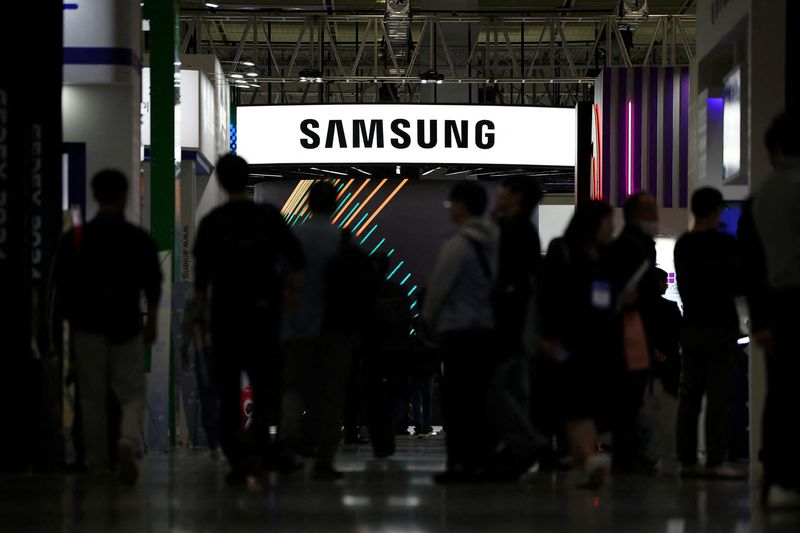
By Hyunjoo Jin and Heekyong Yang
SEOUL (Reuters) -Samsung Electronics sought to inject impetus into its memory and foundry chip units by appointing new leaders on Wednesday, as it scrambles to catch SK Hynix and Taiwan's TSMC in the booming AI chip market.
The world's biggest memory chipmaker reavowed its faith in semiconductor chief Jun Young-hyun by naming him co-CEO and bestowing direct control of its struggling memory chip business.
Samsung (KS:005930) also made U.S. chip head Han Jin-man president and head of its foundry business making customer-designed chips.
However, Samsung kept Chung Hyun-ho, second-in-command to Chairman Jay Y. Lee, as head of its Business Support Task Force and appointed a former CFO as Chung's deputy. That disappointed some analysts who argued for change among the biggest decision makers whose missteps they said made Samsung slow to embrace AI.
Samsung's share price closed down 3.4% as the reshuffle did little to calm concern about how the technology giant will navigate risk associated with the protectionist policies of U.S. President-elect Donald Trump.
Even before Trump's election triumph, Samsung's stock had been falling due to investor concern that it lags rivals as supplier to leading AI chip designer Nvidia (NASDAQ:NVDA).
Chip chief Jun takes on direct oversight of the memory chip business having headed the overall semiconductor division since May in an appointment Samsung said would tackle a "chip crisis".
Profit in the division plunged 40% in the third quarter from the second, with Samsung saying AI chip business had suffered a delay with a "major" customer - with analysts naming Nvidia as the likely customer. Samsung has since said it has made headway.
The extra responsibility indicates "Samsung is backing Jun's strategy to regain its competitiveness," said KB Securities' head of research Jeff Kim.
Still, with Chung remaining head of the Business Support Task Force - widely regarded as Lee's de facto secretariat involved in key decision-making - there are questions as to whether the reshuffle will address concerns about leadership, said Park Ju-gun, head of corporate analysis firm Leaders Index.
Joining the Business Support Task Force is President and CFO Park Hark-kyu, with a new CFO yet to be announced.
As well as catching up in AI and stemming a stock price decline, management has to contend with slowing profit growth and intensifying competition from Chinese rivals.
"I am fully aware that there are grave concerns about the future of Samsung recently," Chairman Lee said this week during a final hearing of an accounting fraud trial where he is a defendant. He has denied wrongdoing.
Wednesday's appointments also included a new chief technology officer of the foundry business and an executive tasked with finding new growth areas.
Samsung said the reshuffle is aimed at overcoming business uncertainty, revamping its organisation and raising the technological competitiveness of its chip business.

